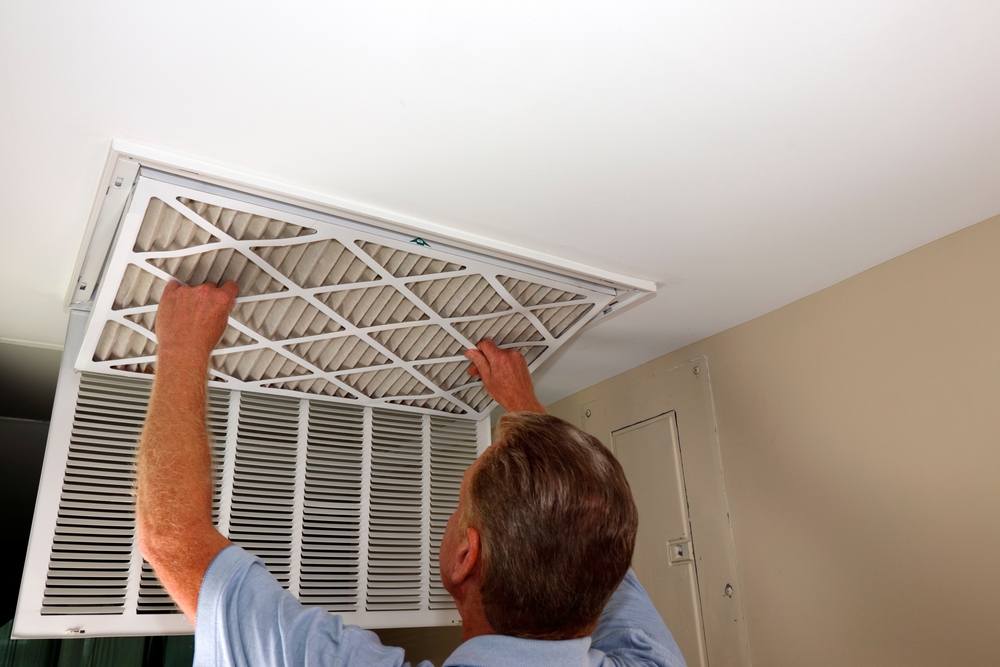
Your home’s heating and air conditioning system relies on both system filters and return vent filters to perform its job correctly. These filters trap and remove airborne contaminants like dust, pollen, pet dander, and other allergens before they can circulate throughout your home or, even worse, clog up the sensitive inner workings of your equipment.
Of course, not all air filters are created equal, which means you need to choose a filter type carefully. Otherwise, you could be left with a low-quality or improperly sized filter that restricts airflow, increases energy consumption, raises utility costs, and results in premature wear and tear on expensive components. But with so many options on the market, how do you know which one is best for your home? Check out our discussion on everything related to air filters for home HVAC systems so that you can make an informed decision!
Popular Air Filters to Consider for HVAC Systems
When you start shopping for air filters, you’ll quickly realize they differ in material, construction, and filtering capability. Understanding these differences is the first step toward finding the perfect match for your needs.
Fiberglass Disposable Filters
Fiberglass filters are the most inexpensive type of air filter. They have a disposable frame, typically made of cardboard, that houses a flat panel of spun fiberglass. Their main purpose is to protect the HVAC unit itself by capturing large particles like lint and dust that could damage the fan motor or coils. They typically need to be replaced every 30 days.
Pleated Disposable Filters
A significant step up from fiberglass filters, pleated filters are made from sheets of polyester or cotton paper, folded into pleats to increase the surface area. This design allows them to capture a much wider range of particles without significantly impeding airflow. They are one of the most popular choices for residential use because they offer a great balance of filtration performance and affordability. Plus, their increased surface area means they can hold more debris and typically last longer than fiberglass filters (usually 60-90 days).
Electrostatic Filters
Electrostatic filters use a static-electric charge to attract and trap airborne particles. These filters are available in both disposable and washable versions. The washable models can be a cost-effective and environmentally friendly option, as you can rinse them with water and reuse them for several years.
High-Efficiency Particulate Air (HEPA) Filters
HEPA filters are the gold standard in air filtration because they are capable of trapping 99.97% of airborne particulates that are 0.3 microns in size. This includes tobacco smoke, bacteria, and other microscopic allergens.
However, these filters are not typically the best HVAC filters for homes. First, they are very dense and can severely restrict airflow. Most residential HVAC systems are not designed to handle this level of restriction and would require significant modification to use a HEPA filter. They are also the most expensive option. For most homes, a high-efficiency pleated filter is a more practical choice.
Factors to Consider When Choosing an Air Filter
Now that you know the different types of filters available, how do you narrow down the options? Here are the key factors to consider to ensure you make the best choice for your home and family.
MERV Rating
The minimum efficiency reporting value (MERV) is a standardized scale from 1 to 20 that rates the effectiveness of an air filter. The higher the MERV rating, the more efficient the filter is at capturing smaller particles.
Just know that it’s important to strike a balance. While a higher MERV rating means cleaner air, it also means greater airflow resistance. Always check your HVAC manufacturer’s recommendations for the maximum MERV rating your system can handle without sacrificing performance. For most homes, a filter in the MERV 8-11 range provides an excellent combination of air quality improvement and system efficiency.
Filter Size
This may seem obvious, but using the correct filter size is absolutely critical. An ill-fitting filter allows air and the particles it carries to bypass the filter media entirely, rendering it useless. This unfiltered air can then deposit dirt and grime directly onto your HVAC system’s evaporator coil and other components, leading to costly repairs and reduced efficiency.
The filter’s dimensions are usually printed on its side. If you can’t find it, measure the length, width, and depth of your current filter to find the exact size you need.
Lifestyle and Household Needs
Your personal circumstances play a significant role in determining the right filter for you. For example, if anyone in your home suffers from allergies or asthma, investing in a higher-MERV filter (MERV 9-12) can make a world of difference by removing triggers from the air. Alternatively, if you have pets or like to smoke in the house, you will want to choose a higher-efficiency filter to capture as many particles as possible.
Let Cool Willy’s Help You Breathe Easier
Are you feeling a bit overwhelmed by your options for HVAC system air filters? We understand how confusing it can be to choose the right one, which is why we’re always happy to answer your questions and provide guidance! Our technicians can assess your system, discuss your needs, and recommend the ideal solution to ensure you’re breathing the cleanest air possible.
Of course, a clean filter is just one piece of the puzzle. To enhance your furnace or air conditioner’s performance even further, we can also provide professional duct cleaning services, timely AC repairs, and energy-efficient indoor air quality upgrades (such as a whole-home air purifier). Connect with our team today to find out how to keep your system running smoothly and your air quality pristine.
